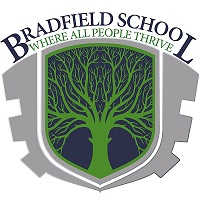Personal Development
What is our curriculum intention and purpose?
Personal Development is taught as a discreet lesson, which includes PSHE, RSE, Citizenship, Fundamental British Values and a Careers programme. Personal Development allows all learners to become healthy, independent, and responsible members of society. It aims to help them understand how they are developing physically, emotionally, and socially, and allows pupils to discuss and debate many of the moral, social and cultural issues that are part of growing up in modern Britain. The curriculum aims to develop skills and attributes such as resilience, self-esteem, risk-management, team working and critical thinking in the context of individual and grouped learning.
What is our learning journey?
How is the curriculum sequenced?
There are 4 key principles, advocated by the PSHE Association that run through all areas of the curriculum of Health and Wellbeing, Relationships and RSE, Living in the wider world and Careers.
All aspects are age appropriate and meets the needs of students’ health and wellbeing. The curriculum has a spiralled learning plan with a whole school approach so that key themes and topics are revisited and delivered in an age-appropriate manner across the different Key Stages.
Students also receive school contextualised issues to address current and social trends which may put our students at risk.
What will my child experience in a typical Personal Development lesson?
Students will experience a safe space to discuss the common threads that tie every lesson together. Teachers ensure that each student’s voice is listened to and challenged where appropriate. Every pupil deserves to feel that they are listened too, respected and that their opinions count. Students will be corrected on their misconceptions. Learning will include case studies where students are encouraged to offer solutions on keeping safe.
How do we assess progress?
To ensure pupils know and remember more, regular low stakes testing, checking knowledge through white boards. Every lesson begins with a Do Now recapping on previous knowledge, which assesses prior learning and all lessons have scaffolded discussion and debate questioning embedded. These assessment opportunities allow feedback to be given verbally or non-verbally through class booklets.
In Personal Development, students will complete 3 assessments assessing students' knowledge and understanding as well as application of safe practices.
How do we extend and enrich our curriculum?
The personal development programme is enriched and extended by topical discussions included in form time. The school has a range of outside agencies/guest speakers delivering assemblies that support and enhance the taught curriculum. Students have the opportunity to take part in small workshops that have a Personal Development theme.
What higher education and career opportunities can this subject lead to?
Personal development will allow all students to become healthy, independent, and responsible young adults that contribute positively to society. Whether they choose to go to college or begin a career, they will understand how they are developing physically, emotionally, and socially, and be able to engage positively. Students will have the knowledge of how to keep themselves safe in their future destinations, therefore leading to a successful future beyond Bradfield.
How can I support my child in Personal Development?
The subjects discussed are not just learnt within the classroom, A good Personal Development education is a partnership between the child’s home and school and there are lots of things you can do as a parent/carer to support your child’s journey. We advise you to spend time to discuss with your child their learning within the Personal Development lesson.
Allowing your child to talk about the topics at home can be a really good way for them to explore and contextualise some of the content. If you have time, research some of the areas you know are coming up in your child’s Personal Development programme, and anticipate any awkward questions. Also, be honest if you can’t answer a question, we can’t be expected to know everything from first aid, to online safety but you can listen to your child and explore these areas further together.
Key Stage 3
| Year 7 | Year 8 | Year 9 |
|
|
|
The order of study may change if we identify a contextual safeguarding issue in school.
Key Stage 4
All students study core Personal Development in Y10 and Y11. Some students opt to take an additional GCSE in Citizenship through a twilight session after school.
| Year 10 | Year 11 |
|
Personal Development
Year 10 – GCSE Citizenship
|
Personal Development
Year 11 – GCSE Citizenship
|
The order of study may change if we identify a contextual safeguarding issue in school.
